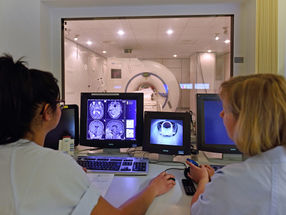Can quantum computers help in the development of new drugs?
The possibilities of this technology have been investigated by the University of Vienna, Boehringer Ingelheim, BASF, Google, QC Ware and the University of Toronto
Advertisement
quantum computers have promising potential applications. One potential area of application is computer-aided research and development of new drugs. A team from the University of Vienna, together with researchers from Boehringer Ingelheim, BASF, Google, QC Ware and the University of Toronto, have investigated the possibilities of this technology in a review article published in the journal Nature Physics.
"Theoretically, quantum computers are able to predict the electronic structure of any molecule without having to use uncontrollable approximations," says Leticia González, theoretical chemist at the University of Vienna. "With classical computers, the computing time increases exponentially with the number of electrons in the molecule to be simulated. This makes the calculation impossible above a certain size. Quantum computers can be used to overcome this barrier, i.e. in future it will be possible to model substances that would take classical computers centuries to calculate."
The background to this is that one of the central issues in the development of new drugs is the interaction of the drug with the target molecule in the body that influences the disease process. The target molecules, known as targets, are usually enzymes or receptors that interact with hormones or other messenger substances in the body. The strength of the interaction, the so-called binding energy, is decisive for the effectiveness of the drug. In addition to classic laboratory experiments, quantum chemical calculation methods are also used today to determine or predict this interaction energy.
Despite enormous progress in both hardware and software, the exact quantum mechanical calculation of the interaction energy of two molecules on classical computers is still a major challenge. Especially for substances that have one or more metal atoms as a central component, the exact description of the properties with classical computers is almost impossible. Prominent representatives of such compounds are cytochromes, which play an important role in the respiratory chain, among other things. A transition metal atom is also often found as a crucial component in certain anti-tumor therapeutics.
Since the Nobel Prize winner in physics Richard Feynman suggested in the 1980s that quantum computers should be used for the simulation and calculation of quantum mechanical systems, much progress has been made towards one day using quantum computers routinely for physical simulations. One of the most promising areas of application is quantum chemistry, which attempts to predict the structure and properties of molecules on an exact quantum mechanical basis.
If one day quantum computers are able to do this, it would mean enormous progress in drug development. There are still many steps to be taken before then, but collaboration between scientists from different disciplines such as pharmacy, chemistry, physics and engineering, as well as cooperation between universities and industry, will greatly accelerate research into new drugs using quantum computers in the future.
Note: This article has been translated using a computer system without human intervention. LUMITOS offers these automatic translations to present a wider range of current news. Since this article has been translated with automatic translation, it is possible that it contains errors in vocabulary, syntax or grammar. The original article in German can be found here.
Original publication
Raffaele Santagati, Alan Aspuru-Guzik, Ryan Babbush, Matthias Degroote, Leticia González, Elica Kyoseva, Nikolaj Moll, Markus Oppel, Robert M. Parrish, Nicholas C. Rubin, Michael Streif, Christofer S. Tautermann, Horst Weiss, Nathan Wiebe, Clemens Utschig-Utschig; "Drug design on quantum computers"; Nature Physics, 2024-3-4




























































